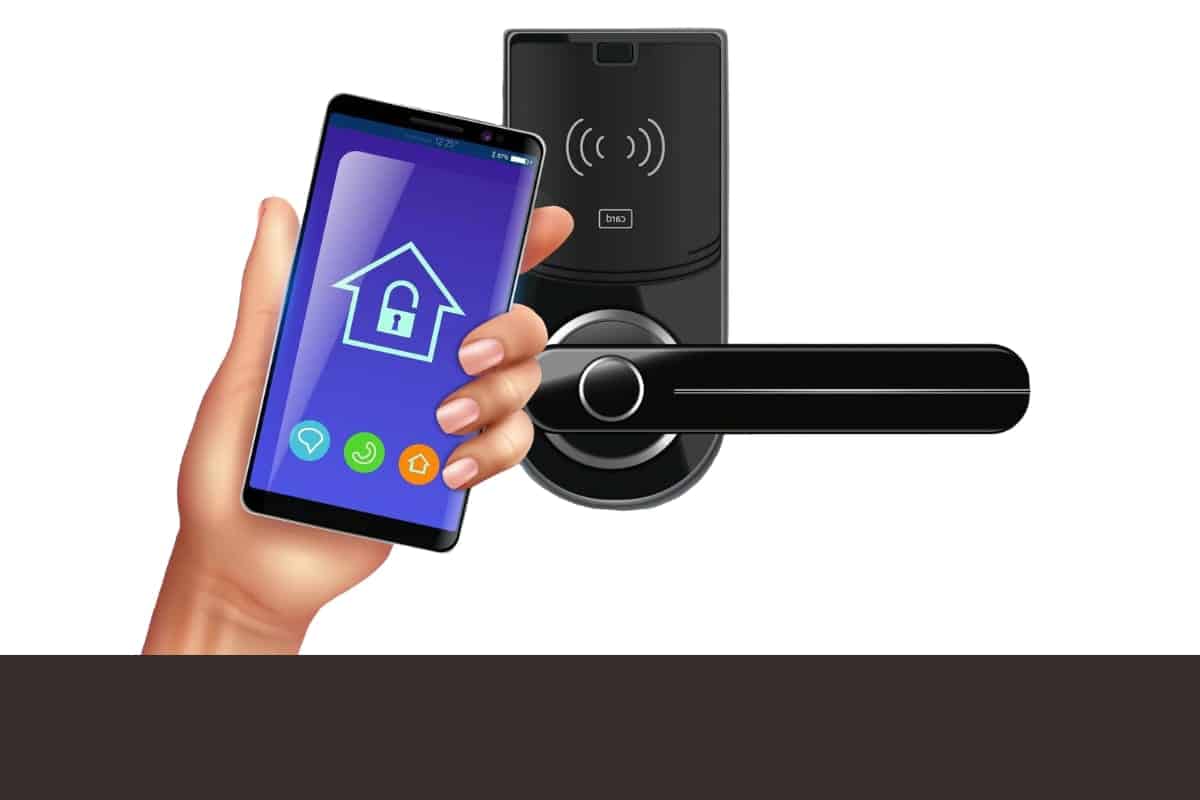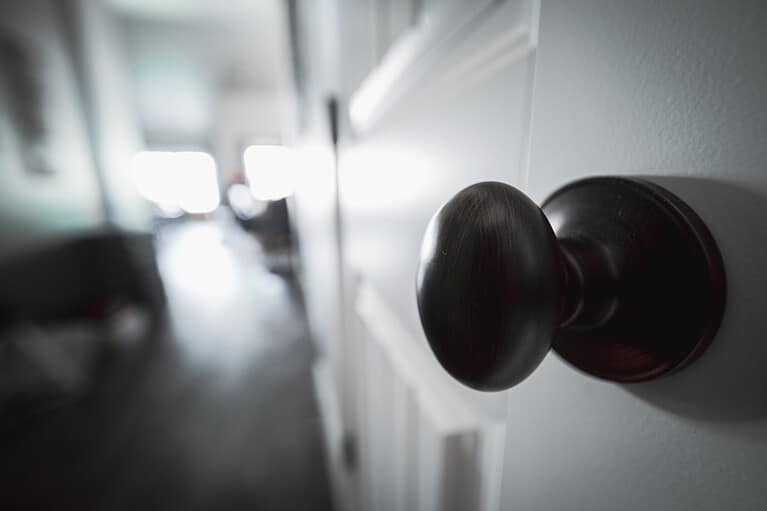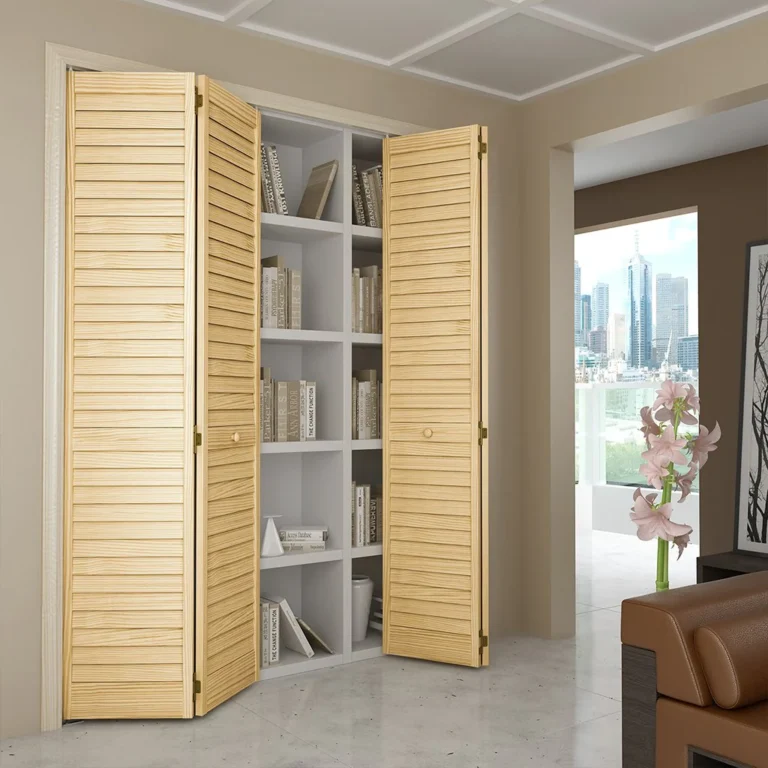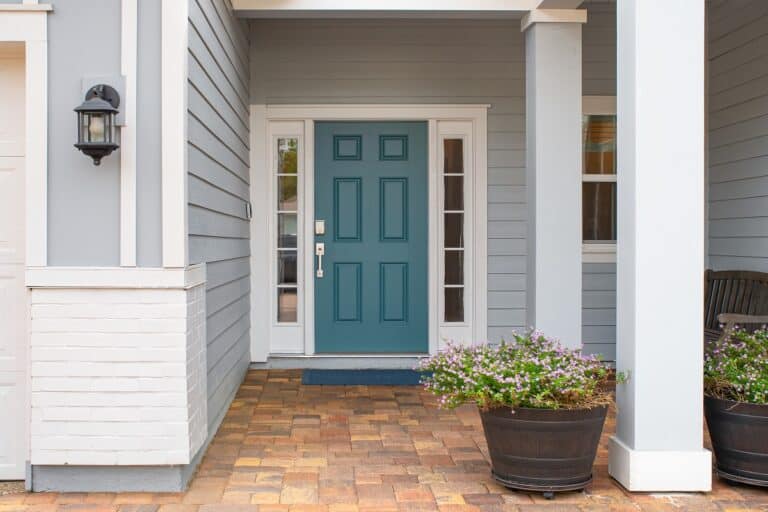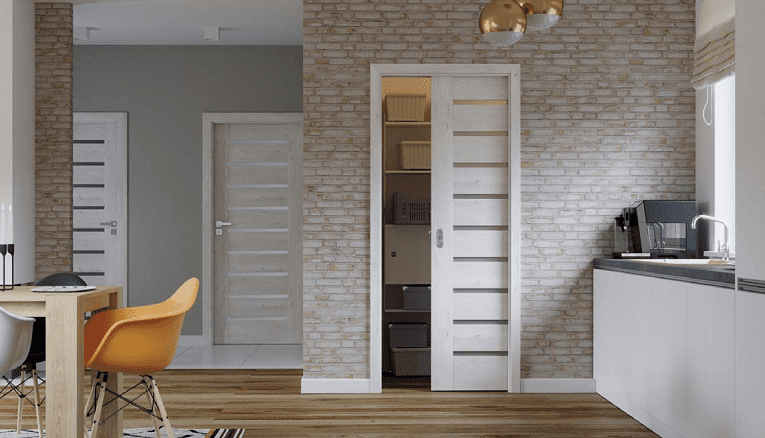In a world where convenience meets technology, smart door locks are taking center stage in home security. No more misplaced keys or wondering if you locked the door—these high-tech smart locks offer features that go beyond the basics. With options like fingerprint recognition, remote access, and auto lock settings, securing your home has never been simpler.
Imagine being able to lock and unlock your door from anywhere with your phone, grant access to guests even when you’re not there, or get real-time alerts when someone enters. Smart door locks bring a new level of peace of mind and connect seamlessly with smart home devices like Google Assistant, Alexa, and even your Apple Watch, turning your security system into part of your everyday life.
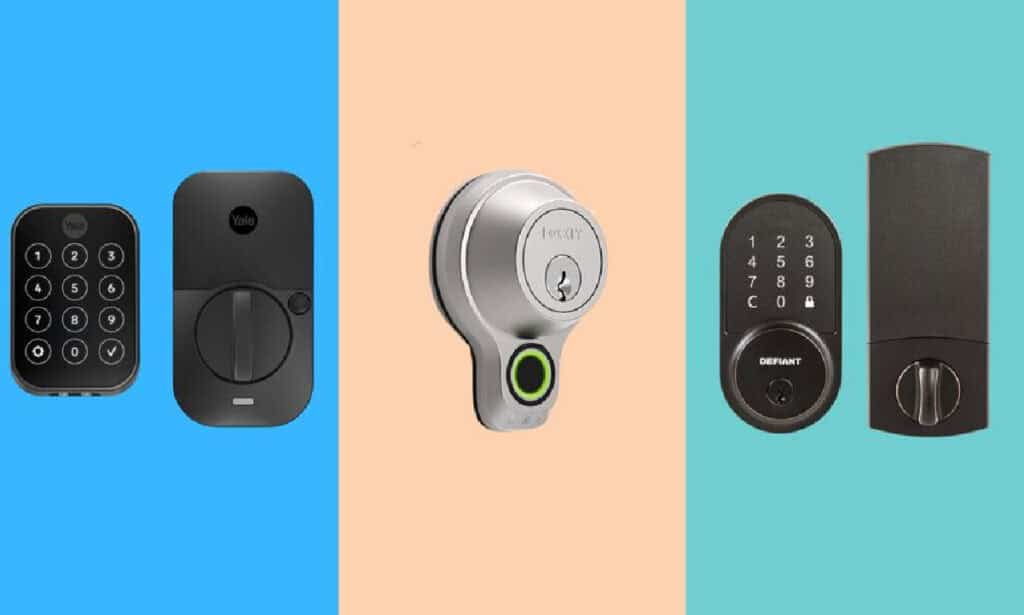
In this guide, we’ll walk you through everything you need to know about smart door technology—from how it works and the different types available, to tips for choosing the best smart lock for your needs. Get ready to unlock the future of security and take control of your home like never before!
What is Smart Door Technology?
Smart door technology is changing the game for home security, bringing together advanced tech and everyday convenience. But what exactly makes a door “smart”?
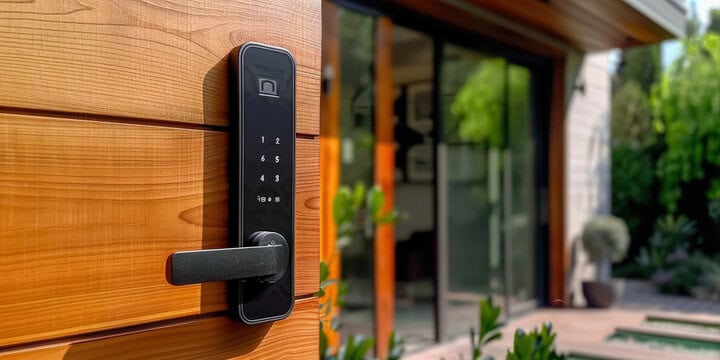
Unlike a traditional door lock, a smart lock gives you way more control. These locks allow you to lock and unlock doors without a physical key and often offer a range of ways to enter—think keypads, fingerprints, or even voice commands through smart speakers. With features like remote access and auto lock, you can keep your front door secure from anywhere, whether you’re down the street or across the world.
Many smart door locks also connect with smart home systems, so you can easily integrate them with other smart home devices. Want to lock up with a simple “goodnight” command to Google Assistant or check if your door’s secure with Amazon Alexa? Smart locks make it possible, turning your home into a hub of smart home technology.
Whether you’re tech-savvy or just looking for a practical upgrade to a traditional lock, smart door technology can make your life simpler and more secure.
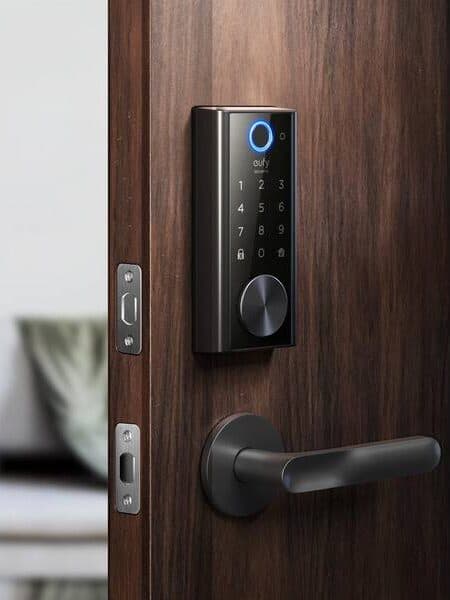
How Smart Door Technology Works
Understanding how smart door technology operates gives insight into why it’s such a game-changer. Here’s a breakdown of the key components and how they work together to keep your home secure and connected.
1. Overview of Key Components
Smart door locks and devices rely on a combination of Wi-Fi, Bluetooth, and wireless networks to function.
- Wi-Fi: Wi-Fi smart locks connect directly to your home’s network, enabling remote access so you can monitor and control your door from anywhere.
- Bluetooth: Bluetooth is often used for proximity-based locking and unlocking, allowing your phone to communicate with the lock when you’re nearby.
- Wireless Networks: Many systems utilize a mix of technologies, including dedicated hubs, to ensure seamless communication between smart devices. This combination provides the flexibility and reliability needed for modern smart home systems.
2. Integration with Other Devices
Smart door technology doesn’t work in isolation—it’s designed to integrate with other smart home devices, creating a unified ecosystem.
- Security Systems: Your smart lock system can connect to your home’s alarm or surveillance system, automatically locking the door when the alarm is armed.
- Smart Lighting: Pairing your smart lock with smart lights means the lights can turn on when you unlock the door, adding both security and convenience.
- Thermostats: Some setups allow your smart lock to communicate with your smart thermostat, adjusting the temperature based on whether the door is locked or unlocked.
This level of integration makes managing your home effortless, enhancing both security and energy efficiency.
3. App and Remote Access
One of the most appealing aspects of smart locks is the ability to control them via smartphone apps. These apps offer a range of functions:
- Remote Monitoring: Check whether your door is locked, no matter where you are.
- Control Access: Grant or revoke access to visitors with just a few taps, and set temporary codes for guests.
- Real-Time Alerts: Get notifications when your door is locked or unlocked, or if someone tries to tamper with it.
These features not only make managing your door simple but also provide an added layer of security, keeping you connected to your home at all times.
Types of Smart Door Locks
When it comes to smart door locks, there’s a variety to choose from, each with unique features designed for different needs. Let’s break down the options so you can find the best smart lock for your home.
1. Keypad Locks
These locks let you ditch physical keys and opt for a code instead. Simply punch in your PIN, and you’re in! Keypad locks are ideal for families or anyone who wants to skip the hassle of keys. Some even offer auto lock options to secure your door after a set time, so you’ll never have to worry if you forgot to lock up.
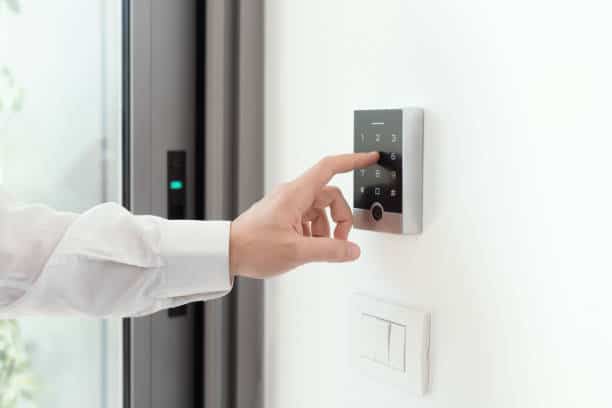
2. Fingerprint/Biometric Locks
Say goodbye to keys and codes—these locks use your fingerprint to unlock. Biometric options are some of the most secure smart locks available, as no two fingerprints are alike. Perfect for anyone who values security and wants entry to be as simple as placing a finger on the scanner.
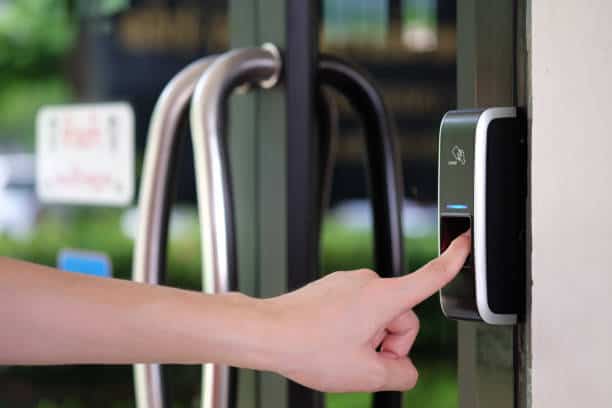
3. Bluetooth and Wi-Fi Enabled Locks
With Bluetooth or Wi-Fi built in, these locks let you lock and unlock your door from anywhere with your smartphone. Wi-Fi smart locks, like the popular August Smart Lock, are fantastic for remote access—ideal if you want to let someone in when you’re not home. Wi-Fi also means you can check the status of your door anytime, anywhere.
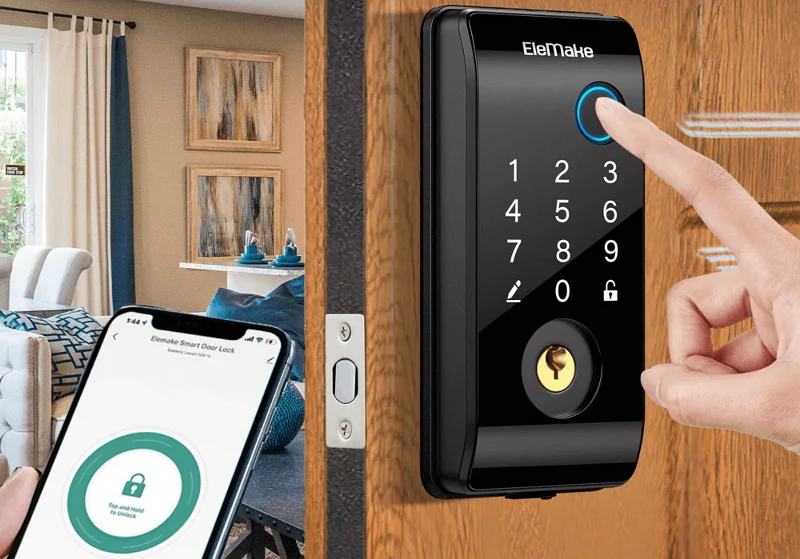
4. RFID Locks
RFID (radio-frequency identification) locks use a fob or card to unlock the door. Simply tap the fob, and you’re in. These locks are often used in commercial settings, but they’re also handy for busy households.
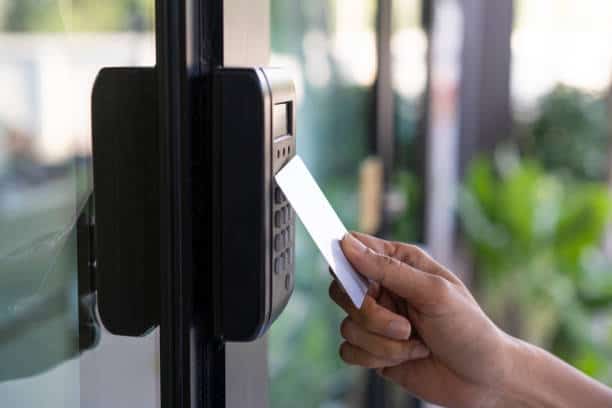
5. Video Integrated Smart Locks
Combining a lock with a video doorbell gives you the ability to see who’s at your door and control access remotely. These locks, like the Eufy Video Smart Lock, give you an added layer of security by allowing you to watch real-time video from your smartphone.
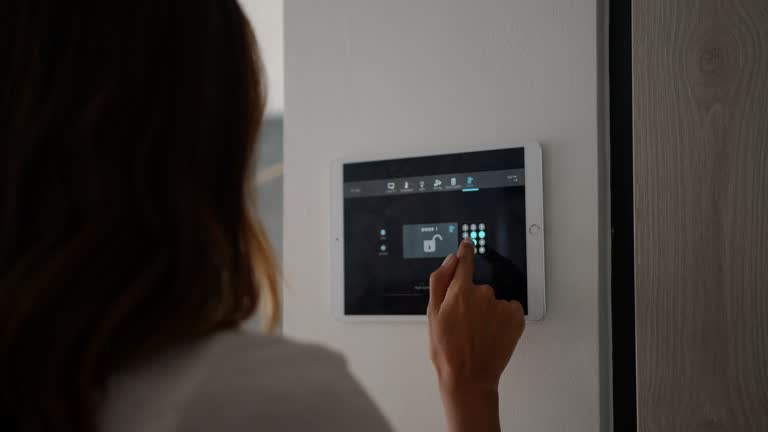
Each type offers a unique blend of security, convenience, and compatibility with smart home devices. Whether you’re all about biometrics or want the convenience of remote access through Wi-Fi, there’s a smart lock suited for every lifestyle.
Key Features to Look for in Smart Door Technology
When shopping for the best smart lock to upgrade your home, it’s essential to know which features matter most. Here are the top features to consider for your smart door lock:
1. Remote Access and Monitoring
One of the biggest perks of smart locks is the ability to lock and unlock your door remotely. This feature is a game-changer if you frequently have guests, need to let in a dog walker, or just want peace of mind knowing you can control your door from anywhere. Many smart lock systems even offer real-time monitoring, sending you notifications every time someone uses the lock, which is perfect for staying on top of who’s coming and going.
2. Integration with Smart Home Systems
If you already have smart home devices like smart lights or a security system, choosing a lock compatible with smart home systems is key. Look for locks that work with Google Assistant, Amazon Alexa, or Apple HomeKit. Imagine saying, “Hey Google, lock the front door,” and it’s done! Seamless integration makes managing your home security a breeze.
3. Multiple Ways to Unlock
Not all smart locks are one-size-fits-all. The best options allow for multiple access methods—such as physical keys, PIN codes, fingerprint recognition, and smartphone access—so you’re not tied to a single option. Some even support voice commands through smart speakers, adding yet another layer of convenience.
4. Auto Lock and Auto Unlock
Many smart locks, like the Yale Assure Lock 2 and August Smart Lock, come with an auto lock feature. This setting ensures your door locks automatically after a set time, giving you peace of mind if you often forget to secure the door. On the flip side, auto unlock uses location services to sense when you’re near, unlocking the door as you arrive.
5. Battery Life and Power Management
Since most smart locks are battery-operated, good battery life is essential. Some models even offer low-battery alerts to keep you from getting locked out unexpectedly. When choosing, check the expected battery life and consider a lock that’s easy to recharge or swap out batteries.
These key features are what make smart door technology such a versatile addition to any home. Whether you want remote access, seamless integration with your smart home, or a lock that automatically locks behind you, picking the right smart lock can give you both convenience and peace of mind.
Security Considerations for Smart Door Locks
With all the convenience that smart locks offer, security remains a top priority. Here are some essential security features to look for when choosing a smart lock that keeps your home protected:
1. Encryption and Data Security
Since smart door locks rely on Wi-Fi or Bluetooth, it’s essential to choose one with strong encryption to protect against hacking. Look for locks with end-to-end encryption, which makes it far more difficult for unauthorized users to intercept data or access your lock remotely.
2. Two-Factor Authentication (2FA)
Many of the best smart locks include two-factor authentication (2FA) for added security. This feature requires you to confirm your identity through an additional device, such as your phone, which adds a crucial layer of protection if someone tries to access your smart lock system.
3. Regular Firmware Updates
Keeping your smart lock secure means staying updated. Most manufacturers provide firmware updates to fix any security vulnerabilities that arise over time. Look for a lock with a reputable brand, like August, Yale, or Kwikset, that frequently issues updates to maintain the lock’s security.
4. Battery Backup and Low-Battery Alerts
A smart lock running low on battery shouldn’t leave you locked out. Many smart door locks, like the August Smart Lock, include low-battery alerts, letting you know when it’s time to change the batteries. Some models also offer a backup power solution, so you can use a physical key or external battery in case the lock loses power completely.
5. Privacy Concerns and Data Management
As with any smart home device, your smart lock may collect data on when it’s locked and unlocked, and who is accessing it. Reputable brands will provide privacy settings that allow you to control how data is stored and used. Make sure to review the manufacturer’s privacy policy to understand how your data will be managed.
These security features help ensure that your smart lock isn’t just convenient but also highly secure. After all, the best smart door technology doesn’t just make life easier—it keeps your home safer too.
Installation and Maintenance of Smart Locks
Installing a smart lock might seem complex, but with the right approach, it can be a straightforward process. Whether you’re a DIY enthusiast or prefer professional help, here’s what you need to know about setting up and maintaining your smart door locks.
1. DIY vs. Professional Installation
Many smart locks are designed for easy DIY installation, allowing you to swap out your existing deadbolt in a matter of minutes. Some models, like the August Smart Lock, fit over your existing lock, making it ideal if you don’t want to change your door’s hardware. For those who want a full installation, a professional can ensure that the lock fits perfectly and integrates seamlessly with your smart home systems.
2. Compatibility with Your Door
Not every lock is compatible with every door. Be sure to check if your chosen smart lock fits your door frame, and that it can replace your traditional lock without issue. If your door is thicker or thinner than standard, you may need to buy additional hardware or choose a lock model specifically designed to fit.
3. Battery Life and Replacement
Battery life is a key part of smart lock maintenance. Most smart locks come with a battery life that ranges from a few months to a year, depending on usage and features. Locks with Wi-Fi built-in, like the Wi-Fi smart locks, can drain battery faster due to constant connectivity. Keep spare batteries on hand and pay attention to low-battery alerts so you’re never caught off guard.
4. Regular Maintenance for Optimal Performance
To keep your smart lock running smoothly, perform occasional maintenance. This can include cleaning the lock’s exterior, making sure the locking mechanism isn’t jammed, and updating the lock’s firmware as recommended by the manufacturer. Firmware updates are particularly important to keep your lock’s software up-to-date and secure.
5. Testing Your Smart Lock
Every so often, test your smart lock to ensure it’s functioning as expected. Check that it locks automatically if that feature is enabled, and that remote access through your smartphone or smart speakers is working correctly. Some people also choose to test smart locks regularly by checking for firmware updates and testing voice control commands.
Proper installation and maintenance can help you get the most out of your smart door technology and keep it working seamlessly for years to come. A little attention goes a long way toward keeping your smart locks reliable, secure, and convenient.
Top-Rated Smart Door Locks on the Market
With so many options available, finding the best smart lock for your home can be challenging. Here are some top-rated smart door locks known for their reliability, ease of use, and impressive features.
1. August Wi-Fi Smart Lock
The August Smart Lock is one of the most popular choices for a reason. It’s easy to install and doesn’t require replacing your existing deadbolt, which is perfect if you like the idea of a simple upgrade. This lock includes built-in Wi-Fi, meaning you can lock and unlock your door remotely from anywhere. Plus, it’s compatible with smart home systems like Google Assistant, Alexa, and Apple HomeKit, making it a great choice for any smart home setup.
2. Yale Assure Lock 2
The Yale Assure Lock 2 is a stylish, reliable choice that offers multiple ways to access your home—physical key, keypad, or through the Yale app. Known for its robust security features, it integrates well with smart home devices and can be managed remotely, so you’ll have peace of mind even when you’re not home. The auto lock feature is another bonus, automatically securing the door after you enter.
3. Schlage Encode Smart Wi-Fi Deadbolt
This Wi-Fi smart lock is built with security in mind. With built-in Wi-Fi, it’s a convenient option for those who want remote access without a separate Wi-Fi bridge. It works with Amazon Alexa and Google Assistant, offering voice control options. The lock also features a durable design and comes with a backup physical key option in case the battery runs low.
4. Eufy Security Video Smart Lock
The Eufy Video Smart Lock combines two powerful tools—a smart lock and a video doorbell—into one. This lock is ideal if you want to monitor who’s at your door while managing access remotely. It includes fingerprint access, auto unlock, and even offers video recording features, so you can see who’s at your door and keep an eye on your entryway, all through the Eufy app.
5. Kwikset Halo Wi-Fi Smart Lock
Kwikset’s smart locks are known for their security and quality, and the Kwikset Halo is no exception. This smart lock has Wi-Fi built-in, allowing remote control and monitoring through the Kwikset app. The Halo lock is especially useful if you want a keyless entry option with the flexibility to assign and manage custom codes, making it great for families or rental properties.
These locks represent some of the best options on the market, each with unique strengths to suit different needs. From the ease of installation of the August Smart Lock to the all-in-one solution of the Eufy Video Smart Lock, there’s a smart lock for every home and lifestyle.
Smart Door Technology and the Smart Home Ecosystem
One of the biggest advantages of smart door locks is how they integrate seamlessly with smart home systems. When your smart lock works alongside other smart home devices, you unlock (no pun intended!) a level of convenience and control that takes your home security to the next level.
1. Integration with Smart Hubs
Most smart locks are compatible with popular smart home systems, including Google Assistant, Amazon Alexa, and Apple HomeKit. This means you can use voice commands to lock or unlock your doors, or even check the lock status with a simple, “Hey Google, is the front door locked?” Adding your lock to a smart hub also enables you to create routines, like setting your doors to lock when you arm your security system or when your smart lights turn off.
2. Creating Scenes and Automations
Imagine coming home after a long day and having your door auto unlock as you approach, your lights turn on, and the thermostat adjusts to your favorite setting. By linking your smart lock with other smart home devices, you can create “scenes” that automate several actions with a single command or trigger. For instance, you could have a “goodnight” routine that ensures the door locks automatically, the lights dim, and your home security system is armed.
3. Voice Control for Added Convenience
With smart speakers like Amazon Alexa or Google Assistant, you don’t even have to reach for your phone to control your lock. Voice control allows you to lock the door while doing other tasks or check the door’s status from across the room. Just say the command, and your smart lock handles the rest.
4. Smart Device Compatibility
Beyond just smart speakers, many smart locks also work with other smart home devices like video doorbells, security cameras, and smart lights. For example, if someone rings your video doorbell, you can check who it is and unlock your door remotely if you want to let them in. Or, pair your lock with your home security system to receive alerts if the door is unlocked unexpectedly.
5. Energy Efficiency and Sustainability
By connecting your smart lock to other devices, you can also make your home more energy-efficient. For example, if you have a smart thermostat, your lock can help trigger energy-saving settings when it knows no one’s home. Not only is this convenient, but it’s also a great way to reduce your home’s carbon footprint.
A fully integrated smart home ecosystem makes daily life smoother, safer, and more convenient. Whether you’re a tech enthusiast or just starting with smart home devices, a smart lock can be the gateway to a truly connected and responsive home.
Future Trends in Smart Door Technology
As smart door technology continues to evolve, new trends are pushing the boundaries of what’s possible in home security and convenience. Here’s a look at what the future holds for smart locks and smart home systems.
1. AI and Machine Learning for Enhanced Security
Artificial intelligence (AI) and machine learning are becoming increasingly important in smart home security. With these technologies, smart locks could soon learn your habits, identifying unusual activity and sending alerts if something seems off. Imagine a lock that recognizes your typical patterns and flags anything out of the ordinary—like a repeated attempt to unlock the door at odd hours. This level of intelligence can take home security to a whole new level.
2. Advanced Biometric Options
While fingerprint recognition is already a staple in some smart door locks, advanced biometrics like facial recognition and voice verification are on the rise. Soon, you might be able to unlock your door with a glance or specific command, making security even more personalized and secure. These features could work in tandem with existing deadbolt setups, offering added layers of protection.
3. Sustainable and Energy-Efficient Designs
As sustainability becomes more central, manufacturers are focusing on creating smart locks with lower power consumption and eco-friendly materials. Look out for models with battery life optimization or even energy-harvesting capabilities. Some future locks may power themselves through kinetic energy generated by unlocking and locking, making maintenance even easier and more sustainable.
4. Deeper Integration with Smart Cities and IoT
The Internet of Things (IoT) is expanding beyond individual homes to create smart cities, and smart locks are likely to play a role in this transformation. In the future, smart locks could communicate with community systems, like allowing access to shared spaces (think gated community doors or apartment lobbies) or coordinating with emergency services. Imagine a lock that could automatically grant access to firefighters or paramedics if an emergency is detected.
5. Enhanced Privacy and Data Security
As smart door locks continue to grow in popularity, so does the need for improved data security and privacy. Future models are expected to have even more advanced encryption standards and data protection, ensuring that your smart lock remains secure from hacking attempts. Features like blockchain technology for data integrity and zero-knowledge protocols may also become standard, giving homeowners confidence that their data stays private.
6. Greater Customization and Personalization
The future of smart locks may also include more customization options, allowing users to personalize access permissions, adjust notification settings, and fine-tune auto lock and auto unlock timings. With these added personalization options, users will have more control over how their locks behave, making smart door technology more adaptable to different lifestyles and security needs.
The future is bright for smart door technology, with innovations on the horizon that will make smart locks even more secure, sustainable, and connected. From AI-driven security to enhanced biometrics, the coming years will likely bring advancements that make securing your home easier and smarter than ever.
Conclusion
Smart door technology isn’t just a trend; it’s a powerful upgrade that combines convenience, security, and smart connectivity. From smart locks with remote access and auto lock features to video doorbells and sensors, these devices are transforming home security and making life easier.
Whether you’re a homeowner looking to simplify access or a business seeking better security, smart door technology offers solutions for every need. As this technology evolves, we can expect even more integration, customization, and energy efficiency, paving the way for a safer, smarter future.
Ready to take the next step? Dive into the world of smart door technology and discover how a small upgrade can make a big difference in your home’s security and convenience.
FAQs About Smart Door Technology
Are smart locks hackable?
Smart locks, including models like the August Smart Lock and Yale Assure Lock 2, are designed with advanced encryption to protect against hacking. However, like any smart lock system, they can be vulnerable if not properly secured. Using strong, unique passwords, regularly updating firmware, and enabling two-factor authentication (2FA) are essential steps to minimize risks. Choosing reputable brands ensures added layers of protection for your smart home.
What happens if the battery dies?
Battery-powered smart locks, such as Wi-Fi smart locks, are designed to alert you when battery life is running low. If the battery dies completely, many models, including the August Smart Lock, offer backup options like a physical key or an external power source. This ensures you can still lock and unlock your door without disruption. Opting for locks with easy battery replacement features simplifies maintenance.
Is installing a smart lock difficult?
Smart locks are often designed for straightforward DIY installation. Many models, such as Wi-Fi smart locks or keypad locks, can be easily attached to an existing deadbolt in 20 to 30 minutes. Advanced locks with built-in Wi-Fi or auto lock features may require professional installation to ensure proper setup. Most manufacturers provide clear instructions or app-based guides to assist users.
Can smart locks work without Wi-Fi?
Yes, many smart locks support Bluetooth connectivity, allowing them to function without relying on a Wi-Fi network. This enables locking and unlocking within a specific range. Some models store access permissions locally, ensuring functionality even during internet outages. However, features like remote access, voice commands via Google Assistant, and real-time alerts usually require Wi-Fi.
Are smart locks suitable for renters?
Smart locks like the August Smart Lock are ideal for renters as they attach to existing deadbolts without requiring permanent modifications. They can be easily removed and reinstalled at a new location. Always consult with your landlord before making changes to the front door or door lock hardware to ensure compliance with lease agreements.
How secure are smart locks compared to traditional locks?
Smart locks enhance traditional security by combining physical mechanisms with digital features. They offer access logs, auto lock features, and real-time alerts to monitor unauthorized attempts. While physical keys are still an option for backup, digital protections like encryption and biometric access increase security. Compared to a traditional door lock, smart locks provide added convenience and safety.
Can smart locks withstand cold weather?
Most smart locks, including Wi-Fi smart locks and those with built-in Wi-Fi, are designed to operate in a variety of climates. However, extreme cold may impact battery performance. To maintain reliability, consider weatherproof models and keep spare batteries on hand. Some locks, like the Yale Assure Lock 2, are built to handle harsh conditions without affecting functionality.
How much do smart locks cost?
The cost of a smart lock varies depending on its features. Budget-friendly options, such as basic keypad locks or Bluetooth-enabled locks, start at around $100. Premium models with advanced features like Wi-Fi connectivity, auto unlock, and video integration can range from $300 to $500. Investing in the best smart lock for your needs provides long-term value.
Are there privacy concerns with smart locks?
Some smart locks, especially those integrated with smart home systems, collect data like access logs or video recordings. To ensure privacy, review the manufacturer’s data policies and select models that allow customization of data-sharing settings. Reputable brands like August and Yale prioritize user privacy, offering options to manage and store data securely within your smart home ecosystem.
